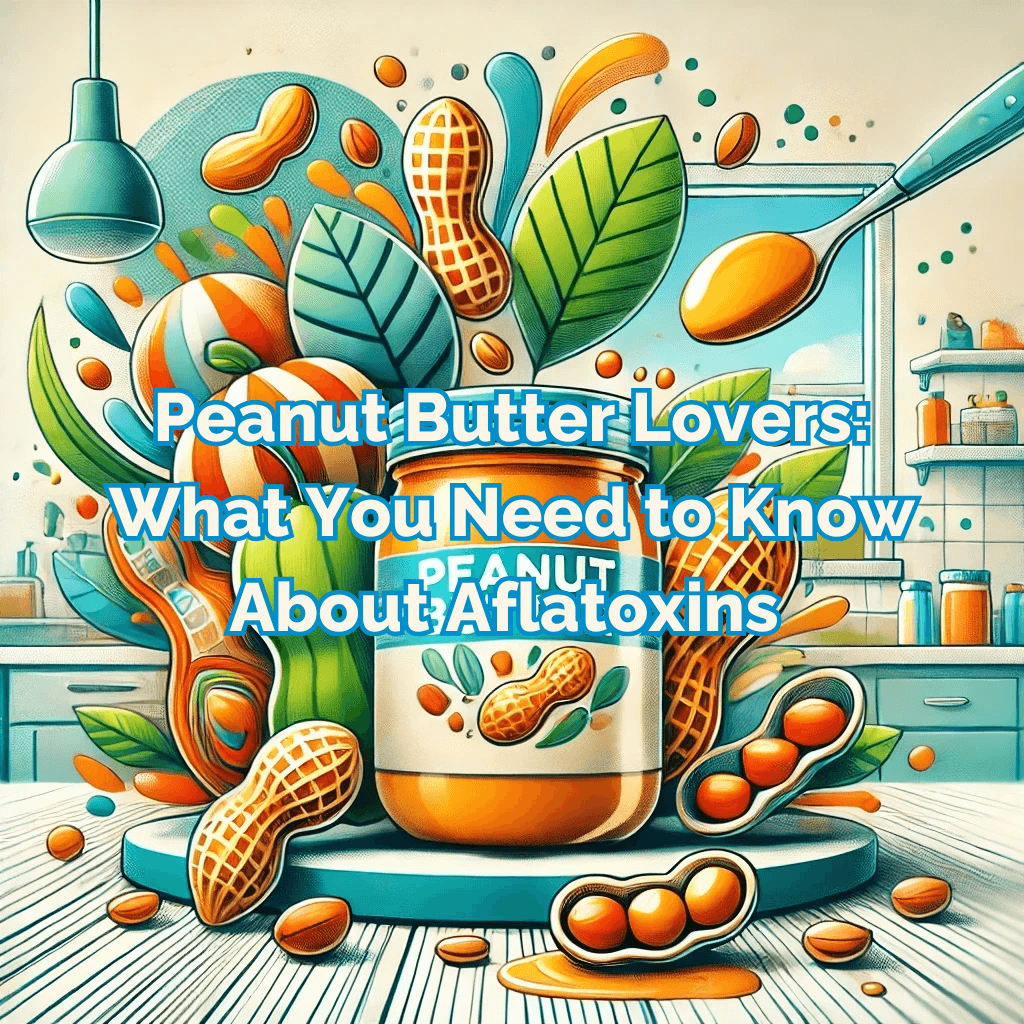
🥜 Unmasking Aflatoxins: The Hidden Danger in Peanut Butter!
Share
Peanut butter is a household favorite, especially for our kids. But did you know this creamy delight might contain a hidden risk? Let’s uncover the truth about aflatoxins, explore their link to cancer, and discover a safer peanut butter option I personally use!
🌿 What Are Aflatoxins? 🤔
Aflatoxins are toxic compounds produced by molds like Aspergillus flavus and Aspergillus parasiticus. These molds thrive in warm, humid environments, contaminating crops such as peanuts, corn, and tree nuts. Unfortunately, aflatoxins don’t just wash away; they can remain in food and pose serious health risks when consumed.
⚠️ The Health Risks: Aflatoxins and Cancer 🚨
The scary part? Aflatoxins are potent carcinogens. The National Cancer Institute states that exposure to these toxins can increase the risk of liver cancer, particularly in those with liver conditions or hepatitis infections. Even small, repeated exposures can add up over time.
💡 Explore research on aflatoxins and cancer here.
🥄 Aflatoxins in Peanut Butter: Should You Be Worried?
Peanuts grow underground, making them especially prone to mold contamination. In the United States, the FDA ensures that peanut products, including peanut butter, contain aflatoxin levels below 20 parts per billion (ppb)—considered safe for consumption.
💬 Here’s the thing: While regulations keep most peanut butter safe, many people don’t realize that some varieties are more susceptible to higher aflatoxin levels than others.
🌱 Valencia Peanuts: A Safer Option I Personally Use
Not all peanut butters are created equal. Valencia peanuts, grown mainly in New Mexico’s dry climate, are less prone to aflatoxin contamination. These peanuts grow in conditions where the toxic mold struggles to survive, making them a safer choice.
✨ My Go-To Recommendation:
I personally purchase Costco’s store-brand peanut butter because it’s made with Valencia peanuts. It’s affordable, tasty, and gives me peace of mind when serving it to my family.
💡 Read more about why Valencia peanuts are a better choice.
🛡️ Tips to Minimize Aflatoxin Exposure
✅ Choose the Right Brands: Opt for peanut butters made from Valencia peanuts—like the one at Costco—or other reputable brands known for strict quality control.
🧐 Check the Peanuts: Discard peanuts that look moldy, shriveled, or discolored.
🏡 Store Correctly: Keep peanut butter in a cool, dry place—especially after opening—to prevent mold growth.
🌰 Try Alternatives: Consider nut butters like almond or cashew, which are less likely to contain aflatoxins.
🌟 Final Thoughts: Stay Nutty, Stay Safe!
While the thought of aflatoxins might make you second-guess your peanut butter habit, the good news is that smart choices make all the difference. With strict safety standards in the U.S. and options like Valencia peanut butter from Costco, you can keep peanut butter in your pantry with confidence.
💬 What Do You Think?
Do you already use Valencia peanut butter? Got a favorite brand? Drop your thoughts below—let’s keep the conversation going!
✨ Stay informed. Stay healthy. And keep spreading the (safe) peanut butter love! 🥜💛
Take the Next Step in Your Wellness Journey
If my story resonates with you, I’ve poured everything I’ve learned about natural healing, health, and wellness into my eBook, "The Creator's Cure." This comprehensive guide is designed to empower you with knowledge, remedies, and protocols that can transform your life and the health of your family.
Inside, you’ll discover:
- Practical, natural remedies for common ailments.
- Step-by-step protocols for holistic healing.
- Insights from over a decade of research and personal experience.
Whether you’re seeking alternatives to conventional medicine or simply want to learn how to support your body naturally, this guide is for you.
👉 Get Your Copy of "The Creator's Cure" and start your journey toward better health today.
Legal Disclaimer
These statements have not been evaluated by the Food and Drug Administration (FDA). This information is not intended to diagnose, treat, cure, or prevent any disease.
I am not a doctor, and the information provided here is based on my personal experiences and opinions. Use this information at your own discretion and always consult with a qualified healthcare professional or your doctor to determine if these ideas or supplements are appropriate for your specific needs.
The author and The Creator's Cure LLC are not liable for any issues, adverse effects, or outcomes resulting from the implementation of the advice, ideas, or supplements discussed. You assume full responsibility for any actions you take based on this information.
